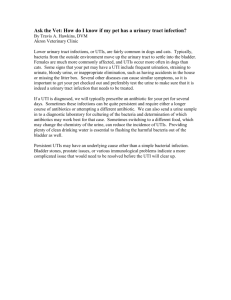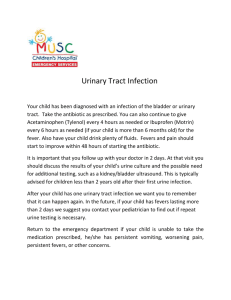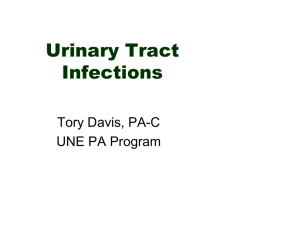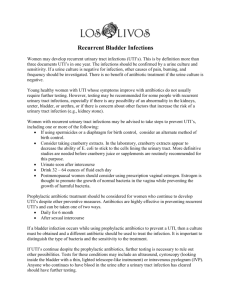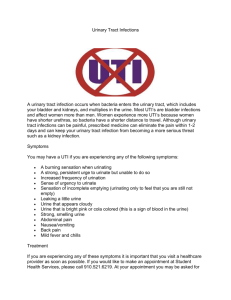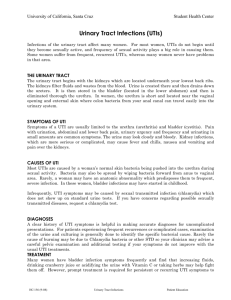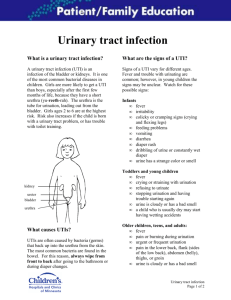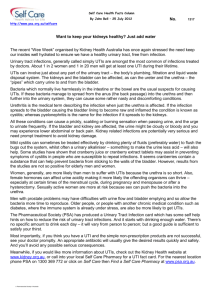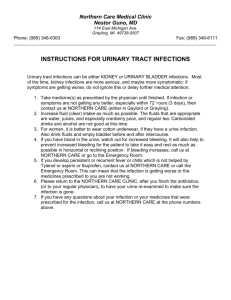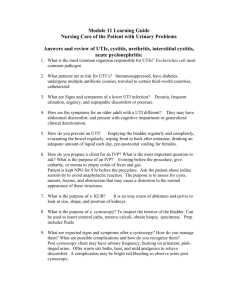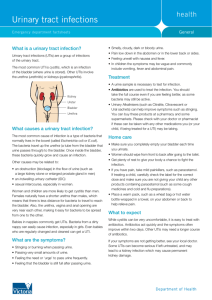Urinary Tract Infections
advertisement
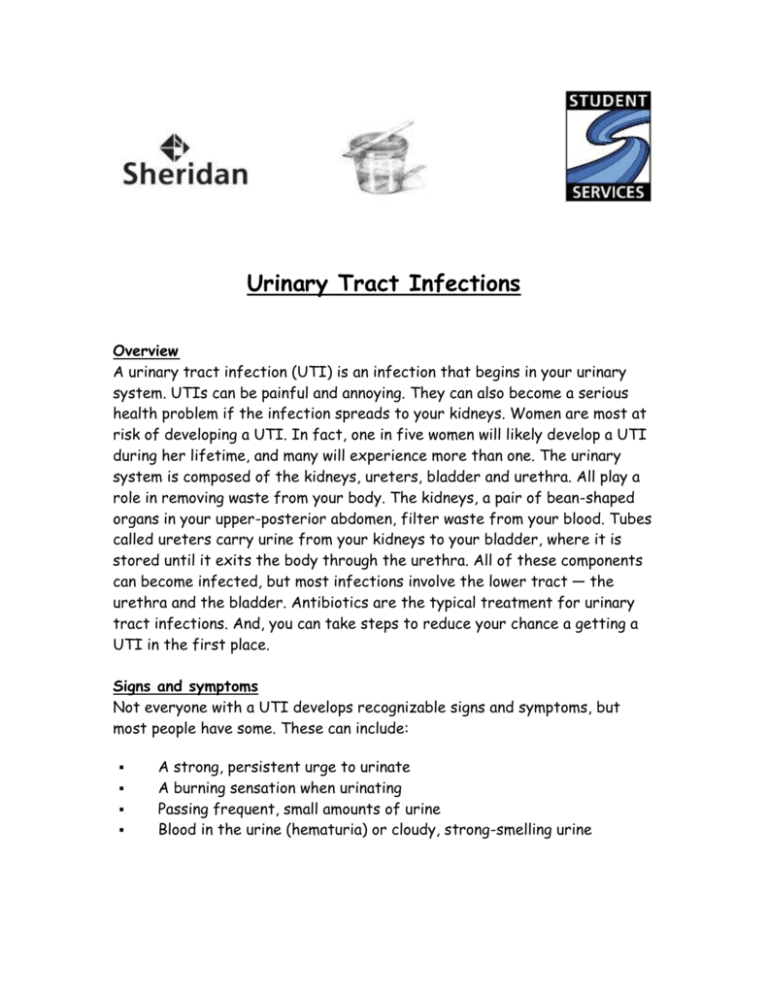
Urinary Tract Infections Overview A urinary tract infection (UTI) is an infection that begins in your urinary system. UTIs can be painful and annoying. They can also become a serious health problem if the infection spreads to your kidneys. Women are most at risk of developing a UTI. In fact, one in five women will likely develop a UTI during her lifetime, and many will experience more than one. The urinary system is composed of the kidneys, ureters, bladder and urethra. All play a role in removing waste from your body. The kidneys, a pair of bean-shaped organs in your upper-posterior abdomen, filter waste from your blood. Tubes called ureters carry urine from your kidneys to your bladder, where it is stored until it exits the body through the urethra. All of these components can become infected, but most infections involve the lower tract — the urethra and the bladder. Antibiotics are the typical treatment for urinary tract infections. And, you can take steps to reduce your chance a getting a UTI in the first place. Signs and symptoms Not everyone with a UTI develops recognizable signs and symptoms, but most people have some. These can include: A strong, persistent urge to urinate A burning sensation when urinating Passing frequent, small amounts of urine Blood in the urine (hematuria) or cloudy, strong-smelling urine Screening and diagnosis If you have symptoms of a urinary infection see a doctor promptly. If your doctor suspects you have a UTI, he or she may ask for a urine sample to determine if bacteria are present in your urine. A urinalysis, sometimes followed by a urine culture, can reveal whether you have an infection. Although no simple test can differentiate between an upper and lower urinary tract infection, the presence of fever and flank pain indicate that the infection likely involves your kidneys. Treatment If your symptoms are typical and you're generally in good health, antibiotics are the first line of treatment for most UTIs. Make sure your doctor is aware of any other medications you're taking or any allergies you have. This will help him or her select the best treatment. Usually, UTI symptoms clear up within a few days of treatment. But you may need to continue antibiotics for a week or more. Take the entire course of antibiotics recommended by your doctor to ensure that the infection is completely eradicated. For severe UTIs, hospitalization and treatment with intravenous antibiotics may be necessary. Self-care UTIs can be painful, but you can take steps to ease your discomfort until antibiotics clear the infection. Follow these tips: Use a heating pad. Sometimes a heating pad placed over the abdomen can help minimize feelings of bladder pressure or pain. If your bladder gets spasms, (especially noticeable after urinating) try taking a warm bath. Drink plenty of fluids. However, avoid coffee, alcohol, and soft drinks containing citrus juices and caffeine until your infection has cleared, because these things can irritate your bladder and tend to aggravate your frequent or urgent need to urinate. Drink cranberry juice which can change the acidity of your urine making it harder for bacteria to survive. Don’t exceed 12 oz. per day though, so you don’t cause irritation to your bladder. Prevention You can take steps to reduce your risk of urinary tract infections. Women in particular may benefit from the following: Drink plenty of liquids, especially water. Cranberry juice taken on a regular basis (daily) may have infection-fighting properties. However, don't drink cranberry juice if you're taking the blood-thinning medication warfarin. Possible interactions between cranberry juice and warfarin can lead to bleeding. Urinate frequently. Avoid retaining your urine for a long time after you feel the urge to void. Wipe from front to back. Doing so after urinating and after a bowel movement helps prevent bacteria in the anal region from spreading to the vagina and urethra. Empty your bladder as soon as possible after intercourse. Also, drink a full glass of water to help flush bacteria. Avoid potentially irritating feminine products. Using deodorant sprays or other feminine products, such as douches and powders, in the genital area, can irritate the urethra. If you have any further question or concerns, please see one of the nurses in the health centre. This information package has been developed by the nurses at Sheridan College, Davis Campus, April, 2006
